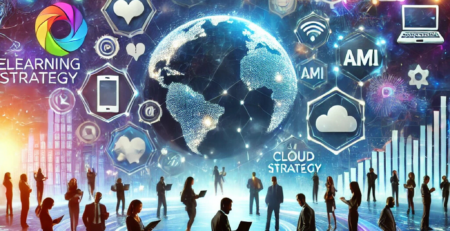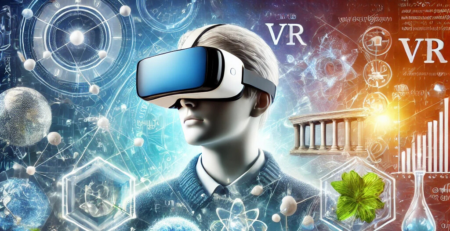How AI is Revolutionizing eLearning Design
In today’s fast-paced digital world, eLearning is not just a trend—it’s a necessity. Organizations and educators are constantly looking for innovative ways to enhance their learning platforms. Enter AI. Artificial Intelligence is playing a significant role in transforming the landscape of eLearning design. But how exactly is it doing this? And what does it mean for custom eLearning development? Let’s dive into how AI is revolutionizing eLearning design.
“AI will be as important to our society as the Internet,” suggests Andrew Ng, a prominent AI researcher. That’s a bold statement, yet when you consider the profound impact AI has had on fields such as healthcare, finance, and now education, you start to see why. The adoption of AI in eLearning isn’t about replacing human instructors; it’s about enhancing the educational experience in ways previously unimaginable.
Understanding AI in eLearning
AI is reshaping the way eLearning courses are developed by offering smarter, more intuitive tools that adapt to individual learner needs. This transformation starts with understanding what AI is and how it integrates into educational environments.
AI-Powered Personalization
In terms of elearning course development, personalization is key. AI enables platforms to adapt to individual learning paces and styles. For instance, AI can analyze a learner’s interactions and adjust content accordingly, ensuring it meets specific educational needs. This custom eLearning solution is not only about offering dynamic content but also about maintaining engagement by catering to the learner’s preferences.
Custom eLearning development powered by AI also allows developers to create complex environments that could adjust in real-time. Imagine the capabilities this offers to elearning providers: a tailored learning experience for every student without the extensive need for human intervention.
The Role of AI in Streamlining Content Creation
Smart Content Curation
AI can generate and curate content rapidly, which is a game-changer for elearning developers. Platforms such as Articulate Storyline can leverage AI to automate repetitive elements of design, allowing articulate storyline developers to focus more on the creative aspects of course development. Tools using AI can find relevant materials, suggest changes, and streamline course creation to save time and effort.
Voice and Language Processing
AI engines that utilize natural language processing (NLP) can convert speech to text and vice versa, enabling voice-activated learning. This not only makes learning more accessible but also enhances comprehension through auditory methods. The capacity to understand and process human language is a direct boost to the efficiency of elearning solutions developed by cutting-edge elearning companies.
Enhancing Learner Engagement
Interactive and Immersive Experiences
AI can create immersive and interactive learning experiences using simulations and virtual reality (VR). Imagine a medical student practicing surgery in a virtual operating room where AI mimics real scenarios. This revolutionary approach offers unparalleled hands-on experience without geographical or physical limitations.
Adaptive Learning Systems
AI helps in building adaptive learning systems that adjust difficulty levels based on the learner’s performance. It’s like having a personal tutor who knows when to push you harder or ease off the pedal. The result? A more motivated learner, who is engaged, challenged, and eager to learn more.
Breaking Barriers with AI
AI is breaking down barriers to education by making it more accessible. Chatbots, for example, act as the first point of contact for students needing assistance. They’re available 24/7, providing crucial information and feedback at any time. This level of support helps maintain a seamless learning journey.
The Future of eLearning Companies With AI
The potential for elearning companies to harness AI technology is vast. As AI continues to evolve, so too will its application within education. We’re only scratching the surface of what’s possible. Future eLearning environments may include even more sophisticated AI applications—think AI mentors providing real-time feedback or AI-driven assessments that adapt not just in content, but in the emotional tone used to deliver feedback.
Challenges and Considerations
While AI offers numerous benefits, it also presents challenges. Privacy concerns and data security are top issues. eLearning providers must ensure that AI systems are transparent and that data privacy regulations are strictly followed. Moreover, there is the ethical consideration of replacing too much human interaction with AI.
To ensure AI continues to enhance eLearning positively, balance is required. AI should supplement, not replace, the invaluable human elements of education.
Conclusion
AI is transforming eLearning from a passive to an interactive and personalized experience. From personalized pathways to real-time feedback and interactive simulations, AI has a profound impact on educational design. As we forge ahead into an AI-driven era, eLearning companies are poised to deliver even more powerful educational experiences that are tailored, efficient, and remarkably engaging.
Whether you’re a developer, provider, or learner, the integration of AI into eLearning offers exciting opportunities. To discover more about how your organization can benefit from artificial intelligence in eLearning, reach out to leaders in custom eLearning development and explore the possibilities today!












Leave a Reply